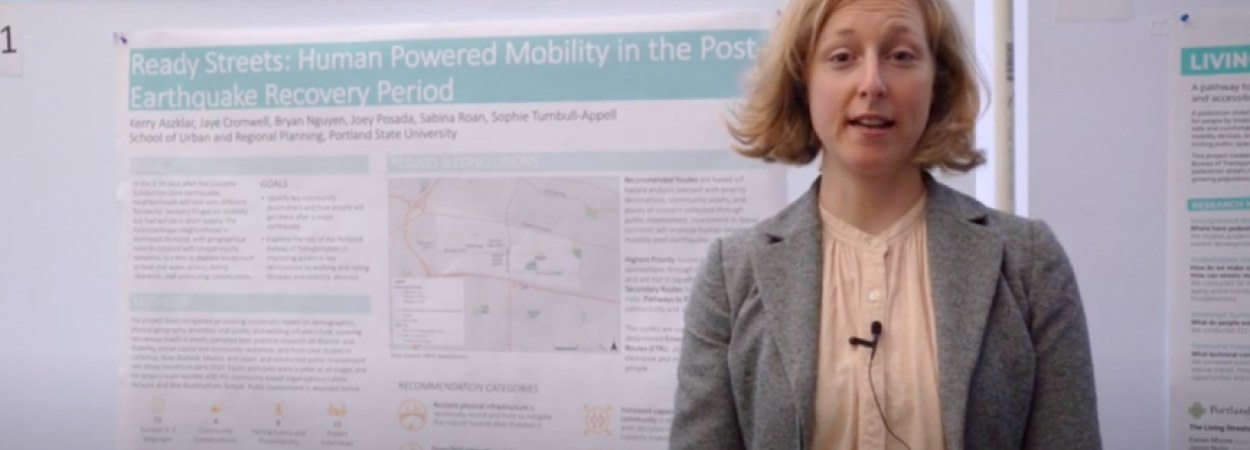 |  |  |

Authored by Tammy Lee, Transportation Data Manager, Portland State University
Traditionally, the month of May is Bike to Work Month. Last year this time, Oregon logged 179,177 trips for a total of 1,374,835 miles by 10,397 riders. And last year this time TREC was winning the PSU bike to work month department challenge. So what are we seeing in the data now?
For continuity from the last time we posted some bike volume observations, we’re again showing data from the Hawthorne Bridge and Tilikum Crossing (Figure 1) in Portland, Oregon. At the moment, daily volume across the Hawthorne Bridge remains relatively low. Typically we’d expect bike volumes across th…
Read More
Photo by Nathan McNeil
Nathan McNeil and Jennifer Dill, Portland State University

In the 2-30 days after a major earthquake, neighborhoods might look very different. Walking and rolling are more dependable ways for people to get around because they do not require fuel. This project examined how a resilient neighborhood-level transportation network could help neighborhoods recover after a major disaster. Hear more in this interview with Sabina Roan, a Master of Urban and Regional Planning graduate of PSU.

Each year, through our Initiative for Bicycle and Pedestrian Innovation (IBPI) program, TREC offers a range of scholarships to assist students pursuing equitable, sustainable, and multimodal transportation. Four Portland State University students were awarded TREC scholarships for the 2020/2021 academic year: Darshan Chauhan of civil & environmental engineering, and Robert Hemphill, Philip Longenecker and Briana Orr of urban studies & planning.
 Darshan Chauhan (see his NITC student spotlight here) is a graduate research assistant in civil engineering at Portland State University. He has served as the treasurer of STEP (Students in Trans…
Darshan Chauhan (see his NITC student spotlight here) is a graduate research assistant in civil engineering at Portland State University. He has served as the treasurer of STEP (Students in Trans…

Photo by Cait McCusker
Chris Cherry and Candace Brakewood, University of Tennessee, Knoxville
John MacArthur, Portland State University
The rapid spread of COVID-19 has changed the way most of the world moves through daily life, with many businesses having to temporarily close and students of all levels forced to transition to online courses.
Even so, grocery stores, medical facilities, and takeout restaurants remain open, requiring workers to commute to and from work. In metro areas, that can often mean taking some form of transit, potentially exposing workers in these vital areas to the disease.
In a collaborative project between University of Tennessee at…
Read More